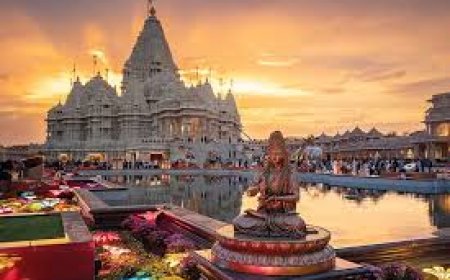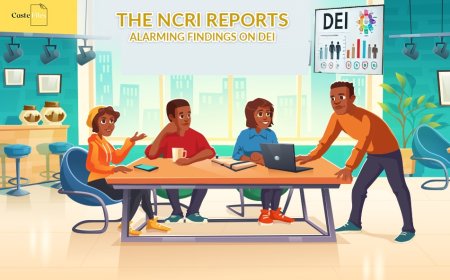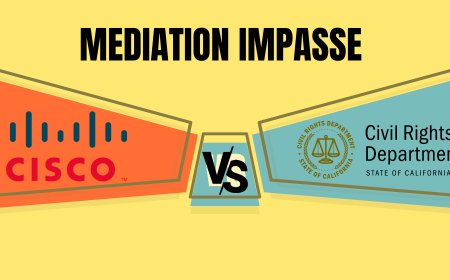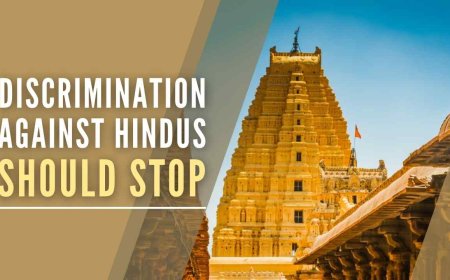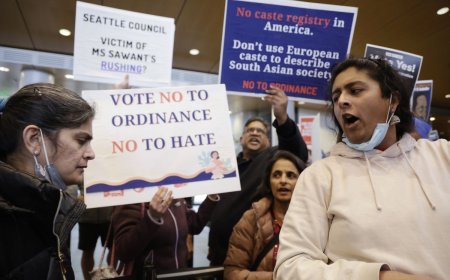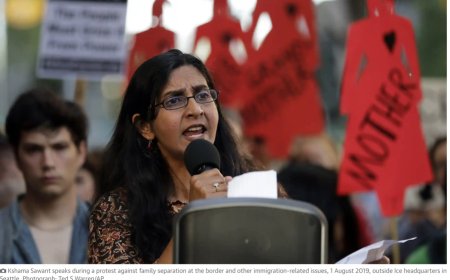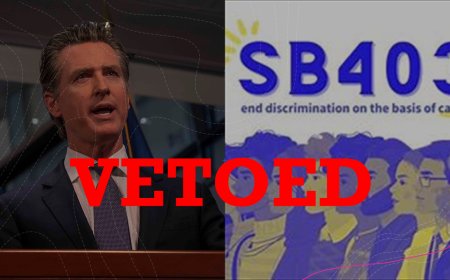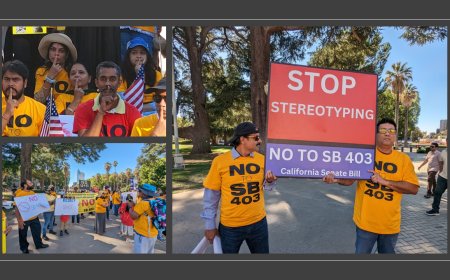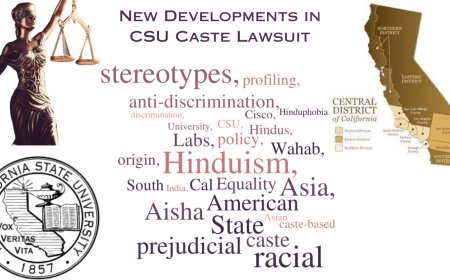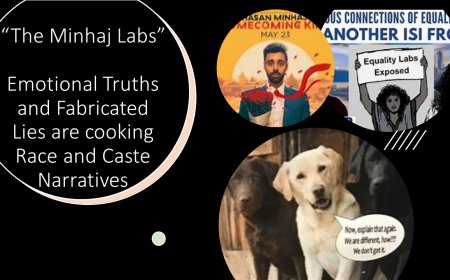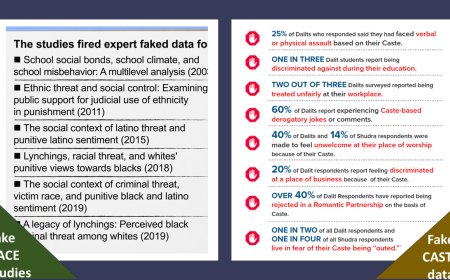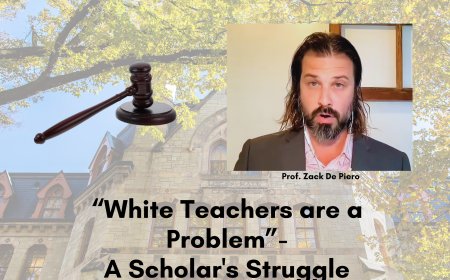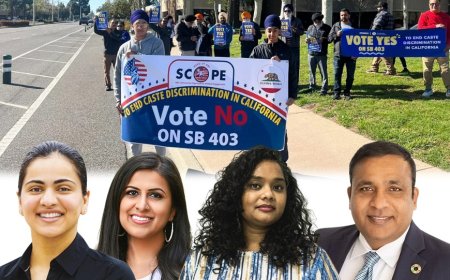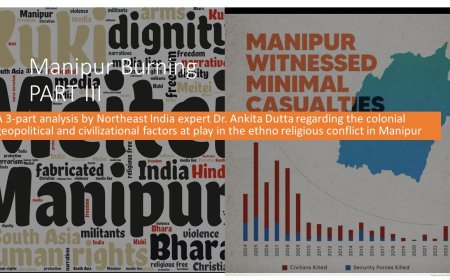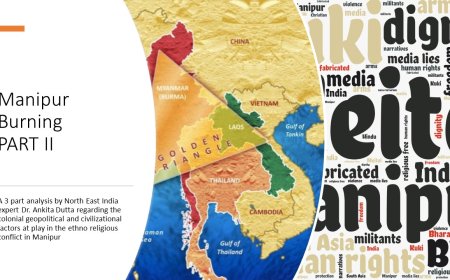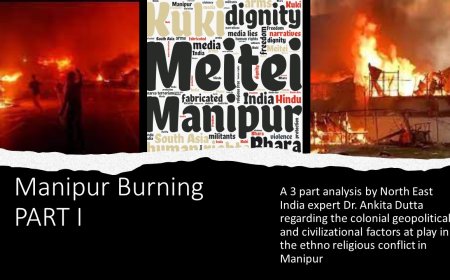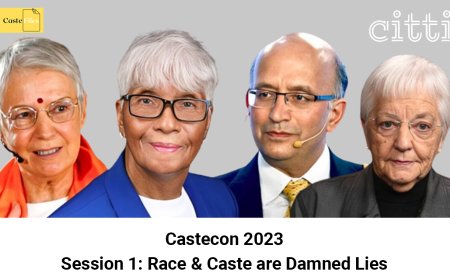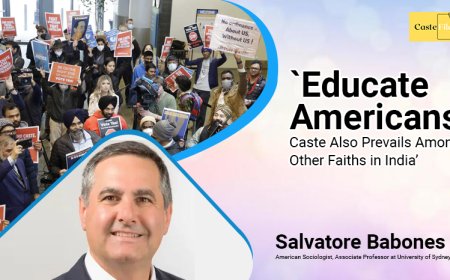Nandini Patwardhan Exposes the Convenient Untruths in Wilkerson's 'Caste'
Since 2020, Award-winning author Nandini Patwardhan has written a series of essays for "Journal of Free Black Thought" challenging Isabel Wilkerson's book Caste and the movie based on the book - Origins. We speak with her to delve deeper and provide a synopsis and links to her essays for our readers.
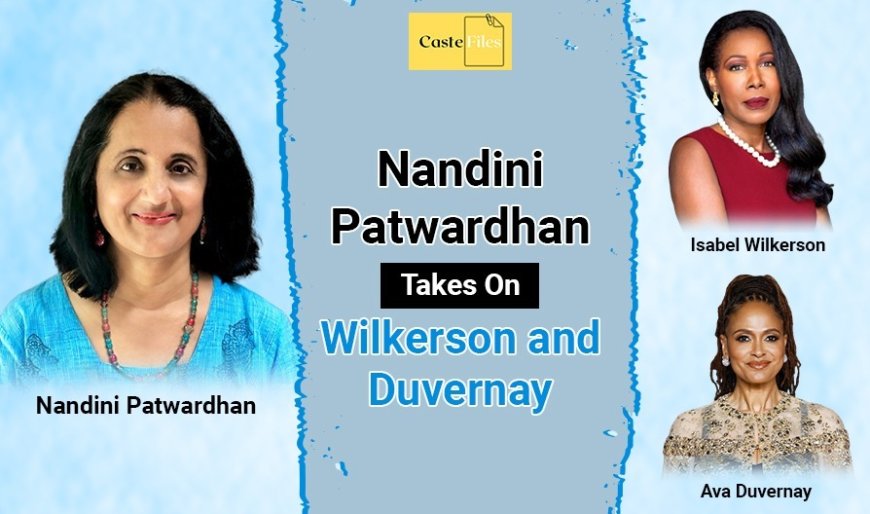
Did Academia Buy Wilkerson's Take on Caste?
Contrary to common perception, Wilkerson’s thesis on Caste was not a unanimous hit. It has met with worldwide criticism in academic circles from African American historians and Indian academics.
For example, Professor of African-American studies, Charisse Burden-Stelly disagreed that Caste explains race. She pretty much calls it 'rich' when she states, "The celebration of Isabel Wilkerson’s Caste reflects the continued priority of elite preferences over the needs and struggles of ordinary people"
Additionally, many well-known academics continue to disapprove of the conflation of Indian ethnography with European Race theories. At CasteFiles, we remain steadfast that Caste is a misnomer for Indic social organization. However, our research indicates that Caste or Sistema de Castas was a direct derivative of the European racial discrimination models based on color, religion, and blood purity.
Another scholar Saida Grundy, Assistant Professor of Sociology, African-American Studies and Women's and Gender Studies at Boston University, severely criticized Wilkerson, calling her book “A grave injury to the public’s understanding of race and racism.” According to Grundy, Caste cannot explain how Race informs the World Systems Theory - a precursor to all modern colonialism, capitalism, and oppressive imperialism.
Grundy is further appalled at the narrow prism of measuring American and Indian societies on the same scale as Nazi Germany. She takes on Wilkerson and contests the idea that Indian social groups are rigid and non-mutative. She points out how affirmative action via reservation quotas has helped move occupations and how changed geographies imply diluted caste in the Indian context.
Is Caste the New Scapegoat?
Various scholars have taken umbrage upon the conflation of Caste and Race. The main question is, “ Is Caste the new scapegoat? Can Caste be theorized as the superseding reason for the existence of racism and even the Nazi Holocaust?
Does this project seek to vilify India and Hindu society by portraying caste as the root cause of global injustices, thereby absolving the West of its historical colonial atrocities in India and elsewhere?
The entire thematic perseverance of Wilkerson is to assert that caste, rather than race, underpins global inequalities. By framing racism as an extension of the caste system, this narrative implicates so-called “upper-caste” Hindus as the progenitors of global inequality, aiming to dismantle Brahmanical hegemony.
Origins
Not only is this dangerous but it also evolves into a festival circuit docu-drama with the tacit connivance of Hollywood in building a lopsided narrative.
The intersection of academia and activism has propelled anti-Hindu rhetoric into Hollywood. "Origins," directed by Ava Duvernay and based on Isabel Wilkerson's book "Caste," exemplifies this trend. The film follows the book conflating race and caste, distorting historical narratives, and mainstreaming Caste as the origin of all discontent where "caste' means the social organization in India and Hinduism.
Caste is an Iberian term born of racial colonial societies - the word itself has been contested as a colonial legacy in India.
Nandini Patwardhan’s Tireless Analytical Crusade against Wilkerson’s Caste
In this overarching context, it is commendable that Award Winning Author Nandini Patwardhan has developed a series of articles critiquing not just the caste and race conflation in Wilkerson’s book but also finding systematic faults, statistical errata, and “convenient untruths”
CasteFiles celebrated Black History Month 2024 with Nandini Patwardhan and her series of articles exposing Wilkerson in a well-known blogging site called “Journal of Free Black Thought” We discussed the loopholes in Wilkerson’s book Caste and the follow-up film Origins, a documentary, based on the controversial book.
CasteFiles recognizes the consistent and persistent work by Award Winning Author Nandini Patwardhan who has probably written the most comprehensive series of articles critiquing the controversial book by Isabel Wilkerson Caste the Origins of Our Discontent and the follow-up movie by Ava Duvernay called Origins based on the same book.
Our Conversation with Nandini Patwardhan
1) Firstly, Congratulations! You have taken on a narrative flipper book that seeks to flip Caste as the primal and primary roots of discrimination and spent considerable time disproving that thesis. What made you pick up this challenging gauntlet developing over 6 essays over the past 3 years?
Back in 2020, soon after the book “Caste” was published, I was asked by several American friends if I had read it. At the time I was not planning to read it. But, noting my friends’ curiosity about my take, I decided that I needed to read it in order to be able to provide thoughtful responses.
When I started reading “Caste,” I was shocked by the one-sided depiction and incorrect interpretation of caste in India. Given the author’s admission near the beginning of the book that she was not at all familiar with Indian society, her statements were deeply unfair to the point of being offensive.
I was equally astounded by her assertions about crime, policing, and the racism of the American electorate. While the analysis of the Indian system was based on carefully chosen anecdotes, the analysis of American society was based on “data.” One data point in particular jumped out at me: “1 in 1,000 young black men were killed by police each year during 2013-2015.” If true, this was a massive and extremely troubling number. This put me in a much more alarmed frame of mind and I read the rest of the data-based conclusions with attention.
When I unearthed the actual data (for example using the Washington Post’s police shootings database), I found that the author’s claims and analysis were completely at odds with the truth. At this point, I had spent several hours on this project, and I could not let it go. I found the falsehoods quite offensive and the blanket praise that the book was receiving even more so. The result was the two-part critique of the data about crime, policing, and American voters which was published by the Journal of Free Black Thought.
Then I decided to publish my critique of the sections of the book that relate to the Indian caste system. The result is the links provided below.
2) Why did you choose the Journal of Free Black Thought to publish?
I chose to publish with the Journal of Free Black Thought (JFBT) for three reasons:
1. Starting around 2020, I was keenly looking for information and insights that would help me make sense of the increasing racial acrimony in the US. While I had and still have tremendous sympathy for African Americans, I could not go along with the rhetoric on issues ranging from defunding the police and relaxing college admissions criteria in order to admit students with lower preparedness. On JFBT I found many reasoned and rational articles that articulated a more balanced and principled point of view. Since my review of the book (Caste) was highly critical, I expected that JFBT would be open to my heterodox point of view. I turned out to be right.
2. I did not want to publish my deeply researched articles on my blog on Medium (or a similar platform) as I wanted the articles to reach the most people. By the same token, I did not want to publish on any Indian diaspora magazine/website. That would have been like talking amongst ourselves, to people who already mostly know and agree. With tens of thousands of followers, I knew that publishing in JFBT would attract lots of readers, particularly mainstream ones. This is exactly what happened.
The fact is that most mainstream publications that are open to long-form essays (like The Atlantic) are deeply woke. They also tend to prefer writers who possess elite academic or other credentials/connections, which I do not. I therefore knew that my critiques would not find a home on those websites.
The icing on the cake of working with JFBT is that they did an excellent job editing my words and independently validating my data analyses.
3) At CasteFiles, a think tank with an academic focus, we have unearthed colonial humiliation tactics that led to the origin of manual scavenging and untouchability in India during Islamic invasions and British occupation. Moreover, these concepts are not unique to India and they may not have originated in India. Nandini, do you think this needs research as there are layers of indoctrination that lead to our constant self-flagellation regarding untouchability?
Yes, more research is definitely needed. Research conducted impartially and while adhering to the most stringent standards is the best antidote to the falsehoods and innuendos that are currently flourishing. Research clarifies the scope of an issue in terms of era, geography, history, and the affected population. A necessary condition to find a solution is to have a proper understanding of the problem at hand. This becomes possible with well-conducted research.
4) Thank you and for our regular readers, we wish to share the links to your essays that have peeled the layers of 'convenient untruths' of Wilkerson's thesis.
1. https://medium.com/@nandiniwriter/to-touch-or-not-to-touch-that-is-the-question-fe568770b10f
2. https://medium.com/@nandiniwriter/caste-based-lighter-skin-preferences-0af75624d84b
3. https://medium.com/@nandiniwriter/positions-of-authority-acbbf10bb3d3
4. https://medium.com/@nandiniwriter/discrimination-and-unconscious-bias-ec3f239fd71a
5. https://medium.com/@nandiniwriter/sacred-thread-2125017dbe80
Nandini Patwardhan is originally from India but has now lived in the US for four decades. She is a retired software engineer and a passionate nonfiction writer, whose work was awarded the San Francisco Press Club Award in 2020 and 2021. Her 2020 biography of Anandi Joshee (1865–1887), titled Radical Spirits: India's First Woman Doctor and Her American Champions, won the Benjamin Franklin Award in Biography. Nandini lives in Oakland, CA. Follow her on Twitter and visit her website.

